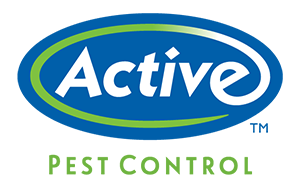Many people have a fear of bats, thanks to Hollywood’s portrayal of the creepy, night-time birds. Are they as dangerous as the movies make them out to be? While the bats in and around your home in Marietta, Georgia probably aren’t quite the bloodsucking creatures you see in horror movies, bats are dangerous – particularly if you’re trying to get them out of a home or building.
The fear of bats is mostly associated with the idea that they carry rabies. Rabid bats are rare but the potential for this is why these creatures should be approached with much caution. If you have bats in your Georgia home, attic, garage, or any other structure, you should call the wildlife professionals at Active Pest Control right away. Getting bit by a bat or any other animal that is rabid can be fatal, if you do not seek medical treatment immediately.
The reality is bats are elusive and actually look for habitats that are not going to put them in contact with humans. But when a bat finds itself in a living space or is cornered when found nesting in your attic, it can become threatened and more likely to attack.
The other, more commonly experienced reason bats are dangerous to humans is something many people aren’t even aware of. If you are exposed to bat guano (bat droppings), you can contract a disease called histoplasmosis. The symptoms of histoplasmosis primarily affect the lungs, but can sometimes cause problems for other organs. If untreated, histoplasmosis is fatal.
Why do Bats go into Structures?
Bats go into homes, attics, garages, sheds, and other structures to avoid predators and to get out of the weather. They gain access through improperly flashed roof valleys, through vents, chimneys, gable ends, siding, and gable ends. Once inside, the bat colonies cause damage to the structures with their nests and feces. Sometimes bats will take up residence in sewers, water wells, utility, or power sheds and can cause interference with the operation of utilities or contaminate water.
Bat proofing is best done during the fall or winter when the pests are most likely to be out of the home and hibernating. Bat proofing in the summer may trap the bats inside. You can help prevent bats from getting into your home with some do-it-yourself bat proofing.:
- Caulk any openings to your home larger than a quarter-inch
- Use draft-guards beneath doors to attics
- Use chimney caps
- Use window screens
- Fill any plumbing or electrical holes with stainless steel wool or caulking
If you already have bats on your property, don’t hesitate to contact Active Pest Control today! Our experts can help eliminate these pests safely and help protect your GA property from future infestations.

